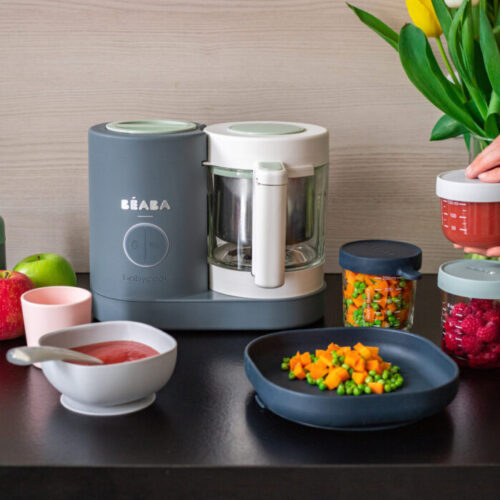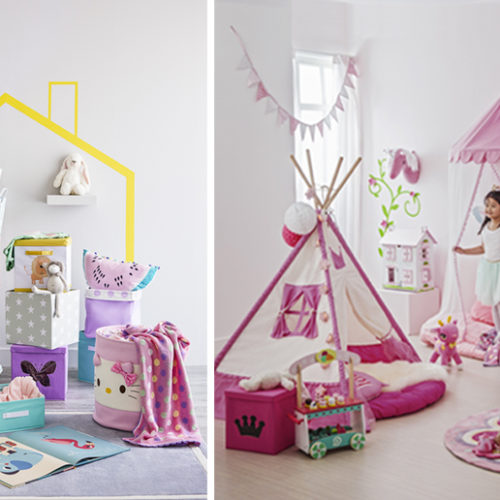Meditation: The ultimate tool for self-soothing

Meditation is a hugely underrated technique for helping your child to mind their mental health. Let’s take a look at how it works and how you can get them started.
Nowadays, society places such high expectations on children. From doing well academically to having an ever-growing social circle, there is a huge amount of pressure on our little ones to keep up with trends, and to avoid ‘falling behind’ in any sense. This pressure understandably takes a toll on the mental health of children. For kids, it seems that there’s no longer any opportunity to take a step back and check in with themselves – their lives are just too busy and too demanding.
One of the best tools for tackling this issue is meditation. Meditation is like a time out for your child’s mind. It offers a chance for them to be still, to let their thoughts slow down and to regain perspective on their day. Research suggests that regularly practising meditation produces a range of benefits. These include improved self-control and ability to pay attention, decreased aggression, as well as treating symptoms of issues such as anxiety and depression. Let’s take a look at how meditation can help your child.
How does it work?
There is much more to meditation than just trying to calm down. Studies have shown that it can, in fact, have a profound effect on your little one’s brain. The rational, thinking and problem-solving part of the brain is called the prefrontal cortex. This area is specifically strengthened through meditation. Similarly, the amygdala, the brain’s ‘fight or flight’ centre, decreases in size. The result of these changes can be very noticeable. Children will be more able to manage their emotions and think clearly, while being less likely to lose control when they experience heightened stress or fear.
As adults, we’ve fully developed our brains and neural pathways – meditation can still have an impact but it is particularly effective with children. Given that their brains are still actively growing and changing, meditation can help to ensure that they develop into empathetic, calm and emotionally stable individuals.
Benefits for children
Having touched on a few of the benefits of meditation for your children, let’s dive a little deeper.
Reduced stress
One of the primary reasons to consider introducing your child to meditation is its dramatic effect on stress levels. It can help to reduce your little one’s heart rate and steady their breathing. Additionally, it helps to reduce the level of cortisol (commonly known as the stress hormone). As a result of practising meditation, your little one will be better able to experience the inevitable worries of life without getting completely overwhelmed.
Boosted concentration and learning
One of the biggest obstacles to your child’s ability to concentrate and learn is stress. A worried child is a distracted child. With a tool like meditation to help manage their stress, children are more able to focus on the task in front of them. They’ll be much better able to pay attention in class, to learn each new topic and to perform well without becoming too stressed.
Improved sleep and immunity
Meditating can have a really positive effect on your child’s general health. Two aspects that parents often worry about are their little ones’ sleep and immunity. The de-stressing nature of meditation will help your child to put down their fears and anxieties before bed, naturally enabling them to fall asleep more quickly and to get a higher quality sleep. It’s also widely accepted that excessive stress can take a toll on our immune systems. The cortisol reduction that comes from meditating means that there is less of this potentially harmful hormone in your little one’s system and, therefore, better immunity overall.
Better confidence and awareness
Anyone that has regularly meditated will attest to the confidence and self-esteem benefits that it brings. There is a somewhat constant sense of inner calm that can’t really be touched by the outside world. Enabling your child to access their own inner calm is a truly wonderful gift.
So many children (and adults!) aren’t aware of their emotions and, as a result, are very reactive throughout their daily life. Oftentimes, their emotional state is completely dependent on their interactions that day. It doesn’t have to be this way! Meditation will help your child to check in with themselves much more often, and thus develop a deeper understanding of themselves.
This awareness of self is like a secret superpower that helps kids to avoid getting swept up in the waves of stress from school and social pressures. With these regular check-ins, your little one will learn more about what they’re actually feeling, what influences their emotions and how they can control their behaviour. A deeper understanding of self breeds a sense of confidence, self-esteem and self-compassion that will encourage your little one to honour themselves and to avoid falling foul of peer pressure.
Types of meditation
If you haven’t meditated before, it’s likely that you have a preconceived idea of what it’s all about. It’s possible that you don’t think meditation is suitable for your child because they find it hard to sit still. The truth is that meditation requires far less effort than you might think. In fact, it’s often more effective when you stop trying so hard! Here are a few types of meditation that are suitable for kids:
Balloon meditation
Balloon meditation is particularly effective for younger children. The premise is simple – encourage your little one to imagine a big balloon in their favourite colour. When they breathe in, tell them to imagine the balloon expanding in size, filling up with all of their worries. Then they exhale deeply and imagine the air leaving the balloon, taking their stresses and fears with it. This can be repeated a number of times, and will slowly help your child to let go of their negative feelings.
Mindfulness meditation
Mindfulness is a great type of meditation that works well for children who struggle to slow their thoughts. The focus of this style of meditation is on your child’s senses. Sitting comfortably in a chair with their eyes closed, tell your child to bring their attention to their breathing, to feel the rise and fall of their chest. Next, they can zoom into different parts of their body. For example, how their back feels against the seat, how their feet feel on the ground or how their hands feel in their lap. Talk your little one through each of their senses, helping them to explore the sounds they can hear and the scents they can smell. This technique can calm an anxious child by drawing them back into the present moment.
Guided meditation
Guided meditation takes the pressure off parents who are trying to help their children to meditate. There are countless child-friendly guided meditations on YouTube that will take them on a journey through their imagination. This style of meditation is particularly good for little ones who may find the other types harder to relax into, or even boring! With guided meditation, all they have to do is close their eyes and follow the instructions. Some children find these a lot more engaging and are much more willing to get involved. Lots of guided meditations will have a lesson embedded within them, usually about love, kindness and gratitude. You may find that you’ll give it a try alongside your little one and reap the relaxing benefits!
A tool for life
Meditation is a free and easy way to bring a sense of calm to your child. Regular practice can make all the difference, dissolving any anxieties or fears that may be holding your little one back. With the knowledge of how it works and where to start, you’re ready to help your child build their self-esteem and find inner peace. Being able to practise meditation will enable them to self-soothe under any circumstances and blossom into the confident young person they were born to become!
Image Credit: ShutterStock











Comments